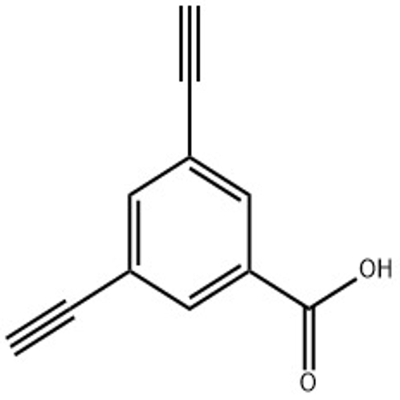-
Categories
-
Pharmaceutical Intermediates
-
Active Pharmaceutical Ingredients
-
Food Additives
- Industrial Coatings
- Agrochemicals
- Dyes and Pigments
- Surfactant
- Flavors and Fragrances
- Chemical Reagents
- Catalyst and Auxiliary
- Natural Products
- Inorganic Chemistry
-
Organic Chemistry
-
Biochemical Engineering
- Analytical Chemistry
-
Cosmetic Ingredient
- Water Treatment Chemical
-
Pharmaceutical Intermediates
Promotion
ECHEMI Mall
Wholesale
Weekly Price
Exhibition
News
-
Trade Service
4-Hydroxy-7-methoxy-1H-quinolin-2-one, also known as 7-methoxy-4-hydroxyquinoline or simply 7-methoxy-4-quinolone, is a hydroxylated derivative of quinoline.
This compound is a white or off-white solid that is soluble in water and many organic solvents.
7-methoxy-4-quinolone has a variety of applications in the chemical industry, including as a catalyst, a ligand, a denitrification agent, and a corrosion inhibitor.
One of the most common applications of 7-methoxy-4-quinolone is as a catalyst for the coupling reaction of organic compounds.
This reaction involves the formation of a new chemical bond between two organic molecules, typically through the use of a transition metal catalyst.
7-methoxy-4-quinolone is an effective catalyst for this reaction because of its ability to coordinate with the metal centers of transition metal complexes.
This ability allows it to catalyze the formation of new bonds between organic molecules, leading to the formation of new chemical compounds.
In addition to its use as a catalyst, 7-methoxy-4-quinolone is also used as a ligand in coordination chemistry.
In this application, the compound binds to the metal centers of transition metal complexes, forming a stable coordination complex.
The binding of 7-methoxy-4-quinolone to the metal centers of these complexes can alter the reactivity of the metal, leading to changes in the chemical properties of the complex.
This makes 7-methoxy-4-quinolone a useful ligand in the development of new transition metal complexes for a variety of applications.
7-methoxy-4-quinolone is also used as a denitrification agent in soil and water.
Denitrification is the process by which bacteria convert nitrate (NO3-) to nitrogen gas (N2), releasing energy in the form of ATP.
This process is important in maintaining the balance of nitrogen in ecosystems, as it helps to prevent the buildup of excess nitrate in soil and water.
7-methoxy-4-quinolone promotes denitrification by serving as a substrate for the bacteria, which convert it to ATP and other metabolites.
This can help to increase the rate of denitrification in soil and water, leading to a decrease in the amount of nitrate present.
Finally, 7-methoxy-4-quinolone is also used as a corrosion inhibitor for metal surfaces.
Corrosion is the degradation of a metal surface due to chemical reactions with its environment.
This can lead to the formation of rust and other products, which can weaken the metal and make it more susceptible to damage.
7-methoxy-4-quinolone can inhibit corrosion by forming a protective film on the metal surface, which can prevent the formation of rust and other corrosion products.
This can help to extend the life of metal structures and reduce the need for costly repairs.
Overall, 7-methoxy-4-quinolone is a versatile compound with a wide range of applications in the chemical industry.
Its ability to act as a catalyst, ligand, denitrification agent, and corrosion inhibitor makes it a valuable chemical in many different areas of the industry.
As research continues, it is likely that new applications for 7-methoxy-4-quinolone will be discovered, further expanding its usefulness in the chemical industry.







